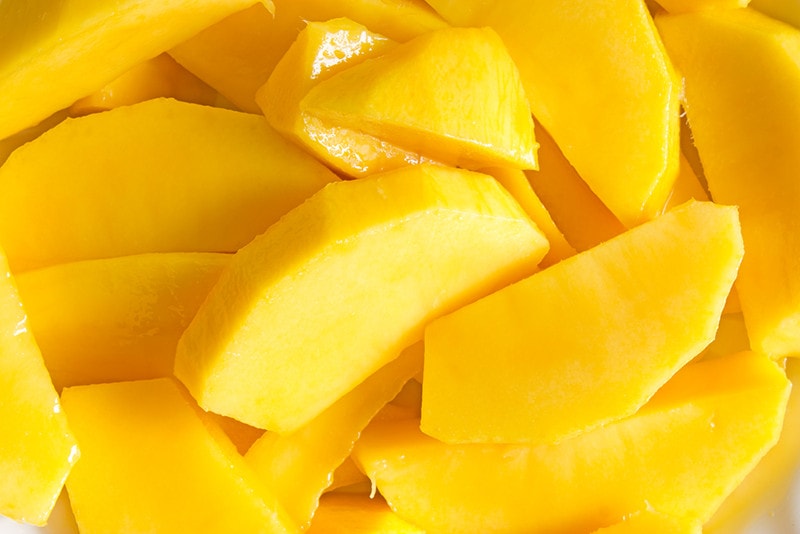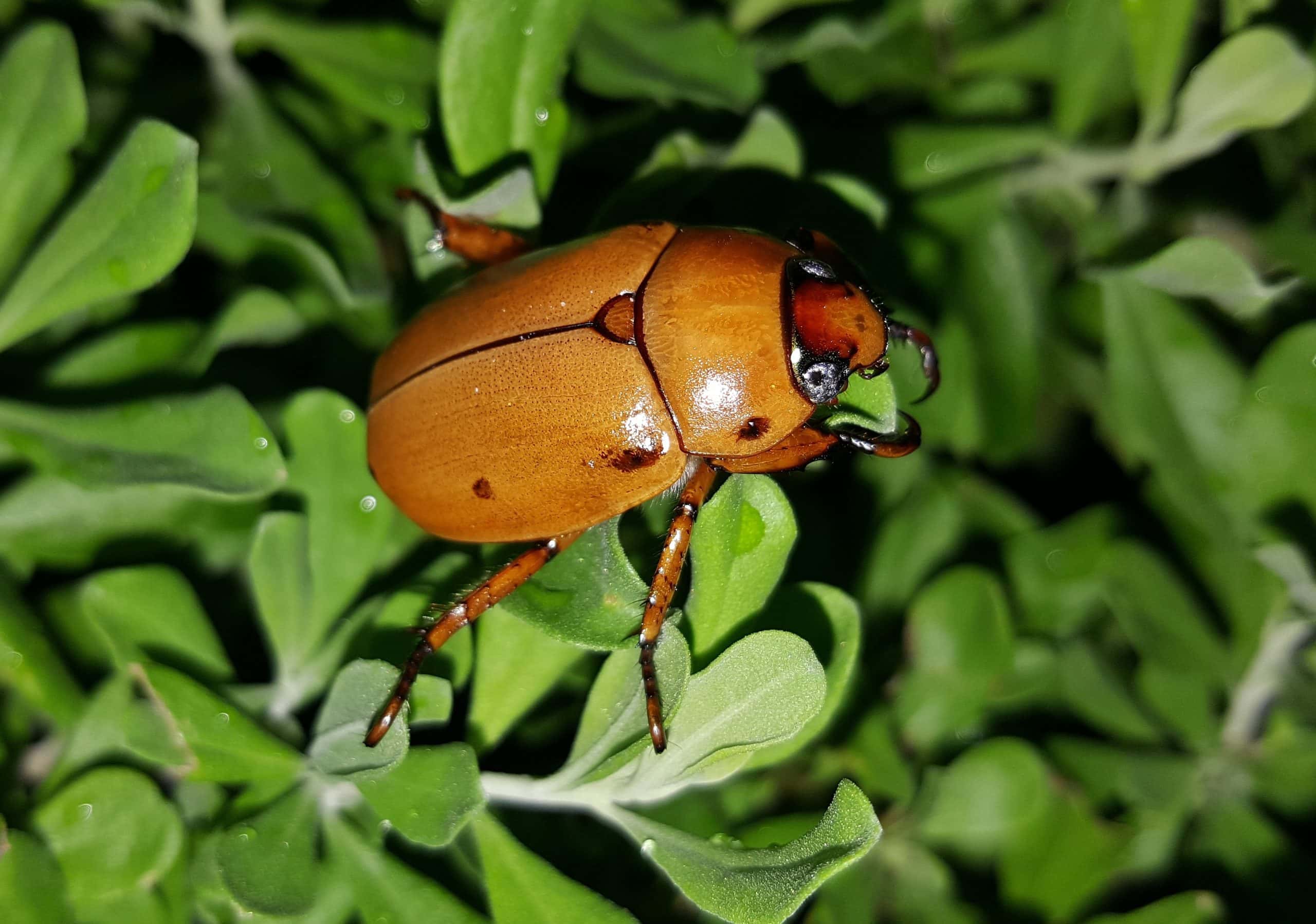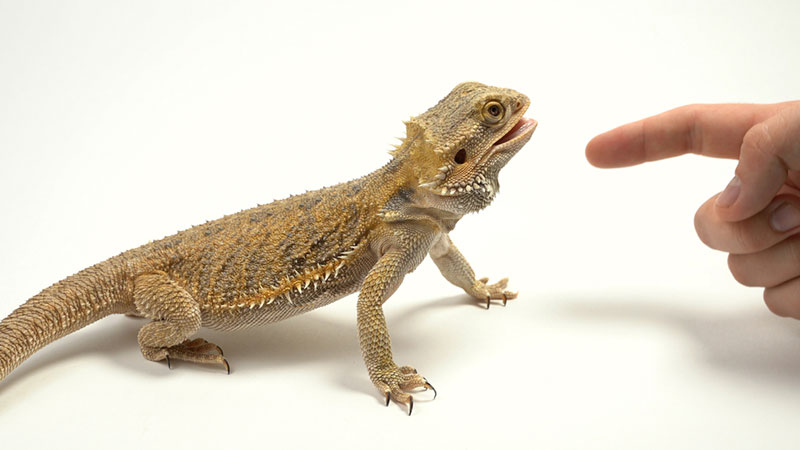Can Bearded Dragons Eat Worms? Vet-Approved Facts & FAQ
Updated on
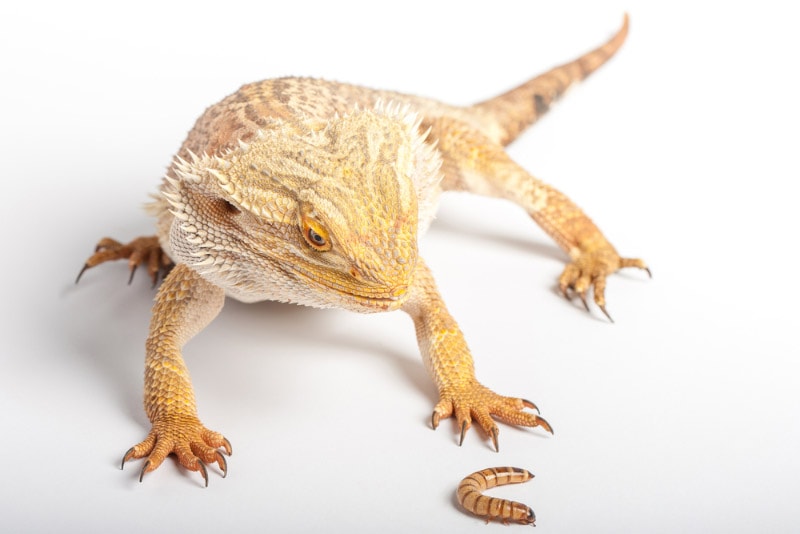
As omnivores, bearded dragons need both plant and animal-based foods like insects. If you’re searching for the best source of protein for your dragon, you may wonder whether worms are a suitable option.
Bearded dragons can definitely eat worms; many are so nutritious that they can be offered as a staple. However, not all worms are healthy for reptiles. Read on to find out what worms are great feeder insects, which worms to avoid, and which to use only as treats.
What Worms Can Bearded Dragons Eat?
Your beardie can eat several different species of worms, but not all are appropriate for every bug feeding.

Best Staple Worms
- Black soldier fly larvae (BSFL), also known as phoenix worms, contain the perfect balance of calcium to phosphorus, so you don’t need to dust these guys with any supplement before feeding. They can be stored at room temperature or in the fridge if you want them to last longer. If storing them in the refrigerator, keep them in the door or use a wine cooler to ensure the temperature isn’t too cold.
- Hornworms are bright green insects that can entice even the pickiest beardie to eat his protein. They’re rich in calcium and can be big and juicy, giving your dragon the hydration he needs. Because they’re low in fat and have little to no exoskeleton, they’re easy to digest. However, beardies fed too many hornworms may experience runny stools due to the high water count. For this reason, we don’t recommend relying solely on hornworms to meet your beardie’s protein needs.
- Silkworms are a great source of essential amino acids and polyunsaturated fat. They’re a great source of calcium and can be grown to your desired size. The silkworm’s soft body is easy to swallow and digest. They’re pretty easy to care for as they can live without food for a week and a month or longer if provided food.
Best Treat Worms
- Superworms are high-fat worms chock full of protein and other nutrients your reptile needs. They are best suited as a treat for adult beardies only. Their tough exoskeleton can make digestion tough for baby and juvenile beardies and may pose an impaction risk.
- Butterworms are high in protein but also in fat. They’re great as an occasional treat for both adult and baby beardies but shouldn’t be used as a staple.
- Waxworms are another high-fat insect that shouldn’t be a staple in your pet’s diet. Your beardie is likely to love them, so keep some on hand for the occasional treat.
- Mealworms are a safe treat for adult beardies, but they shouldn’t be given to hatchlings or juveniles due to their high-fat content and phosphorus levels. We recommend dusting them with a calcium powder before feeding.
- Red Wigglers are small worms closely related to earthworms. They’re often used for composting as they can supplement soil with castings and have great aerating skills. They’re high in protein and lower in fat than other worms but don’t offer much in terms of nutritional value other than that.
- Earthworms aren’t toxic, but most beardies don’t particularly care for their taste. Additionally, they’re high in fat and carry parasites that can make your lizard ill, especially if you offer wild-caught earthworms.
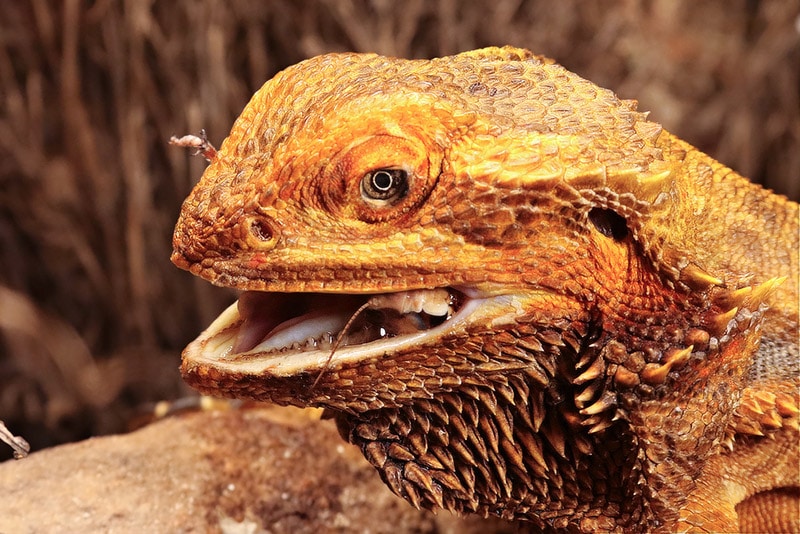
What Worms Should I Not Feed My Bearded Dragon?
You should never offer any wild-caught worms to your bearded dragon. This is true even if you find wild versions of the safe staple worms mentioned above. Wild worms may carry parasites or be contaminated with harmful chemicals such as fertilizers and pesticides that can harm or even kill your beardie.
How Often Should Beardies Be Fed?
The frequency you feed your beardie will depend entirely on his age. It’s always best to consult with your vet to formulate the best diet plan for your pet but as a rough guide:
- Hatchlings (between zero to six months) should be offered insects twice a day and a nutritious salad daily.
- Juveniles (between six and 12 months) should get insects once a day and a nutritious salad daily.
- Adults (older than 12 months) should only get insects between one and three times per week and, you guessed it, a nutritious salad daily.
As your beardie ages, you may find he is less inclined to eat his protein, much preferring his salads. This is normal, as adult dragons don’t need as much protein or calories from insects when they’re older.
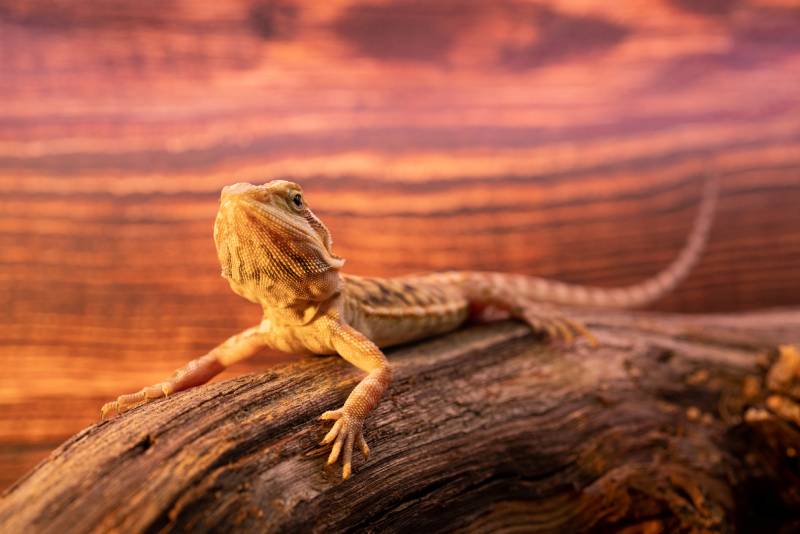
How Many Insects Should My Beardie Get?
We can’t provide you with an exact number of bugs to feed as it depends entirely on several factors, including how big the bugs are, what bugs you’re feeding, and your beardie’s age.
A good rule of thumb is to offer your dragon as many bugs as he can eat within five to ten minutes. After this time, remove the leftovers and save them for the next feeding.
What Other Insects Are Good for Bearded Dragons?
Worms aren’t the only insects you should be feeding your beardie. The following bugs are also great feeders you can offer alongside the ones we mentioned above:
- Crickets
- Dubia roaches
- Discoid roaches
- Red runner roaches
Remember, variety is the spice of life, not only for your diet but for your dragon’s, too. So make sure you’re switching up the feeder insects you’re offering to keep him interested in his protein!
Final Thoughts
The right worms can be a healthy part of your bearded dragon’s diet. Try to choose worms from the staple insect lists above, and only use fattier options like superworms, waxworms, and butterworms sparingly. These bugs are too high in fat to be offered too often as they can contribute to obesity and its related health problems.
Featured Image Credit: Jozsef Dotzi, Shutterstock


